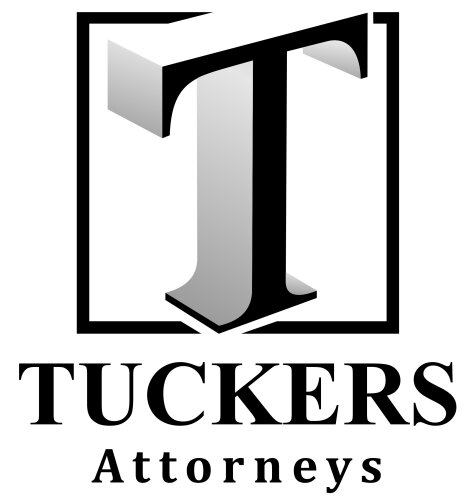Best Disability Insurance Lawyers in Boksburg
Share your needs with us, get contacted by law firms.
Free. Takes 2 min.
List of the best lawyers in Boksburg, South Africa
About Disability Insurance Law in Boksburg, South Africa
Disability Insurance provides financial protection for individuals who become unable to work due to a disability or serious illness. In Boksburg, as in the rest of South Africa, Disability Insurance can be offered through private policies or as an employee benefit. The governing principles are guided by both national legislation and local practices, with disability claims intersecting with employment and insurance law. Individuals rely on Disability Insurance to maintain their income and support their families when faced with a disabling condition, making access to fair policies and claim processing vital.
Why You May Need a Lawyer
While many Disability Insurance claims proceed smoothly, there are several situations where legal assistance is crucial. You may need a lawyer if:
- Your claim has been unfairly denied or delayed by an insurance company.
- You are having trouble understanding your policy wording or the definitions of disability.
- Your insurer is requesting excessive or burdensome documentation or medical evidence.
- You are being pressured to settle your claim for less than you believe is fair.
- You suspect bad faith or discriminatory practices by the insurer or your employer.
- Your policy has been cancelled or premiums increased after your claim submission.
- There is a dispute regarding pre-existing conditions or excluded events.
- You require representation in court or before an Ombud or regulatory body.
Local Laws Overview
Disability Insurance in Boksburg is primarily governed by South African national legislation. Relevant laws include:
- Long-term Insurance Act 52 of 1998: Regulates contractual relationships between policyholders and insurers, including definitions, disclosure requirements, and policyholder protections.
- South African Labour Relations Act and Employment Equity Act: Provide protections for disabled individuals in the workplace, impacting Group Disability Insurance benefits provided by employers.
- Policyholder Protection Rules (PPR): Issued by the Financial Sector Conduct Authority (FSCA) to provide further guidance on insurer obligation and complaints resolution.
Frequently Asked Questions
What qualifies as a disability for insurance purposes?
Generally, a disability is defined in the policy as a physical or mental injury or illness that prevents you from working in your own or any occupation. Each policy may have specific definitions and exclusions.
How do I submit a disability claim?
You need to complete your insurer’s claim form, provide medical reports, and any supporting documentation proving your disability. Your insurer or employer can provide guidance on required documents.
What are common reasons for claim denials?
Claims may be denied if the insurer believes the condition is not covered, if there are allegations of non-disclosure, if they argue the disability is not severe enough, or due to policy exclusions for pre-existing conditions.
Can I appeal a denied disability claim?
Yes, you have a right to appeal the insurer’s decision. This process may involve submitting more evidence, engaging with the insurer’s complaints process, or seeking assistance from the Ombud or a lawyer.
What is the role of the Ombud for Long-term Insurance?
The Ombud is an independent office that reviews complaints between insurers and policyholders. They can make recommendations and binding decisions on individual insurance disputes.
Can pre-existing conditions affect my disability coverage?
Yes, many policies exclude disabilities arising from pre-existing medical conditions unless the policy has been in force for a specified period or if proper disclosure was made when purchasing coverage.
Is disability insurance compulsory for employees?
No, disability insurance is not compulsory by law, but many employers offer it as part of employee benefits. You may also purchase private coverage.
How long does it take to receive benefits after approval?
Payment timelines vary by insurer but are typically a few weeks to a few months after final approval of a claim, provided all documentation is in order.
What happens if my disability is temporary?
Some policies provide temporary disability benefits, while others only cover permanent disabilities. You should review your policy to understand which types of disability are included.
Do I need legal representation when submitting a claim?
Not always, but legal representation is advised if your claim is complex, is denied, or if you encounter difficulties with the insurer. Lawyers can help ensure your rights are protected and your claim is fairly assessed.
Additional Resources
The following resources can assist individuals seeking information or help with Disability Insurance issues in Boksburg:
- Office of the Ombud for Long-term Insurance
- Financial Sector Conduct Authority (FSCA)
- South African Human Rights Commission (for disability rights)
- Department of Labour (for workplace disability matters)
- Legal Aid South Africa
- Boksburg local legal clinics and non-profit organizations supporting persons with disabilities
Next Steps
If you believe you have a Disability Insurance issue, take the following steps:
- Review your insurance policy documents carefully and gather all correspondence.
- Document your medical history and treatment relevant to your disability claim.
- Contact your insurer to understand their claims or complaints process.
- If you feel unfairly treated or your claim is rejected, consider reaching out to the Office of the Ombud for Long-term Insurance or consulting a reputable lawyer experienced in insurance law.
- Legal representation can greatly assist in appealing claim denials or clarifying your rights under the policy.
- Act promptly to avoid missing any deadlines set by your policy or under South African law.
Lawzana helps you find the best lawyers and law firms in Boksburg through a curated and pre-screened list of qualified legal professionals. Our platform offers rankings and detailed profiles of attorneys and law firms, allowing you to compare based on practice areas, including Disability Insurance, experience, and client feedback.
Each profile includes a description of the firm's areas of practice, client reviews, team members and partners, year of establishment, spoken languages, office locations, contact information, social media presence, and any published articles or resources. Most firms on our platform speak English and are experienced in both local and international legal matters.
Get a quote from top-rated law firms in Boksburg, South Africa — quickly, securely, and without unnecessary hassle.
Disclaimer:
The information provided on this page is for general informational purposes only and does not constitute legal advice. While we strive to ensure the accuracy and relevance of the content, legal information may change over time, and interpretations of the law can vary. You should always consult with a qualified legal professional for advice specific to your situation.
We disclaim all liability for actions taken or not taken based on the content of this page. If you believe any information is incorrect or outdated, please contact us, and we will review and update it where appropriate.









